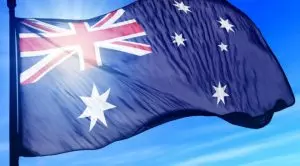 It seems that an online casino based in the Caribbean is unlawfully targeting Australian residents by using ads on Facebook, but the social media platform now claims that the advertiser is an authorised gambling partner.
It seems that an online casino based in the Caribbean is unlawfully targeting Australian residents by using ads on Facebook, but the social media platform now claims that the advertiser is an authorised gambling partner.
Media reports have revealed that the ads promoting a Curaçao-registered online casino were displayed even after the casino operator received a formal warning to stop operating in Australia. After the controversy occurred, Facebook noted that the advertiser was authorised under its policy which requires gambling advertisers to prove that they are legally operating in the territories they are willing to target.
Apart from raising questions regarding the liability of international social media platforms, such as Facebook, in case illegal adverts are displayed on their platforms, the issue has also come to illustrate how difficult online casino laws in Australia are to enforce.
While the placement of the gambling adverts in question violated the Australian gambling law, it remains unknown whether Facebook, which allowed this to happen, could be held legally responsible for publishing the materials.
Federal and State Laws Restrict Gambling Ads Publication in Australia
 Back in 2021, the Australian Communications and Media Authority (ACMA) found that BitStarz was providing local customers with a prohibited interactive gambling service in violation of federal law. At the time, the company was given a formal warning by the regulatory body, which also noted that the operator is not permitted to target Australian customers.
Back in 2021, the Australian Communications and Media Authority (ACMA) found that BitStarz was providing local customers with a prohibited interactive gambling service in violation of federal law. At the time, the company was given a formal warning by the regulatory body, which also noted that the operator is not permitted to target Australian customers.
The regulatory action, however, does not seem to have prevented BitStarz’s adverts from targeting Australian customers. As revealed by ABC News, four ads on Facebook were served to no less than four different customers in July and August last year.
The adverts were collected as part of the Australian Ad Observatory, a university research project operated by the ARC Centre of Excellence for Automated Decision-Making and Society. As revealed by one of the chief researchers, Professor Daniel Angus, there is potentially a large number of people who had seen the aforementioned adverts and other ads that many have not been captured by researchers.
Currently, the publication of gambling advertising materials in Australia is being restricted by various federal and state laws. Facebook, on the other hand, offers adverts to certain audiences and demographics selected by advertisers. According to the so-called targeting information available, the recipients were targeted at least partly because of the fact they originated from Australia. Reportedly, the controversial adverts also feature the Australian flag, which leaves little doubt about the targetted audience, no matter what Facebook’s parent company claims.
Facebook Says the Ads Were Published by Authorised Gambling Partner
 Advertising banned online gambling services in the territory of Australia is a violation of the country’s Interactive Gambling Act.
Advertising banned online gambling services in the territory of Australia is a violation of the country’s Interactive Gambling Act.
A spokesperson for Meta, the parent company of Facebook, shared that the company had reviewed the four controversial adverts before releasing them and can confirm that the ads, which had been run by an “authorised gambling partner” in the period July-August 2022, had been reviewed by the company.
Under the provisions of Facebook’s gambling advertising policy, advertisers are required to provide evidence that the advertised services are appropriately licensed by a regulatory body, or are legal in the country markets they are willing to target.
For the time being, it is yet unclear what evidence was provided by the advertiser displaying BitStarz’s adverts but the policy of the social network does not require the platform to review and give approval to each advert individually. According to researchers, it is highly unlikely that every ad placed on Facebook is reviewed by a human, which makes it understandable that some adverts manage to slip unnoticed and, eventually, be placed on the platform.
- Author


